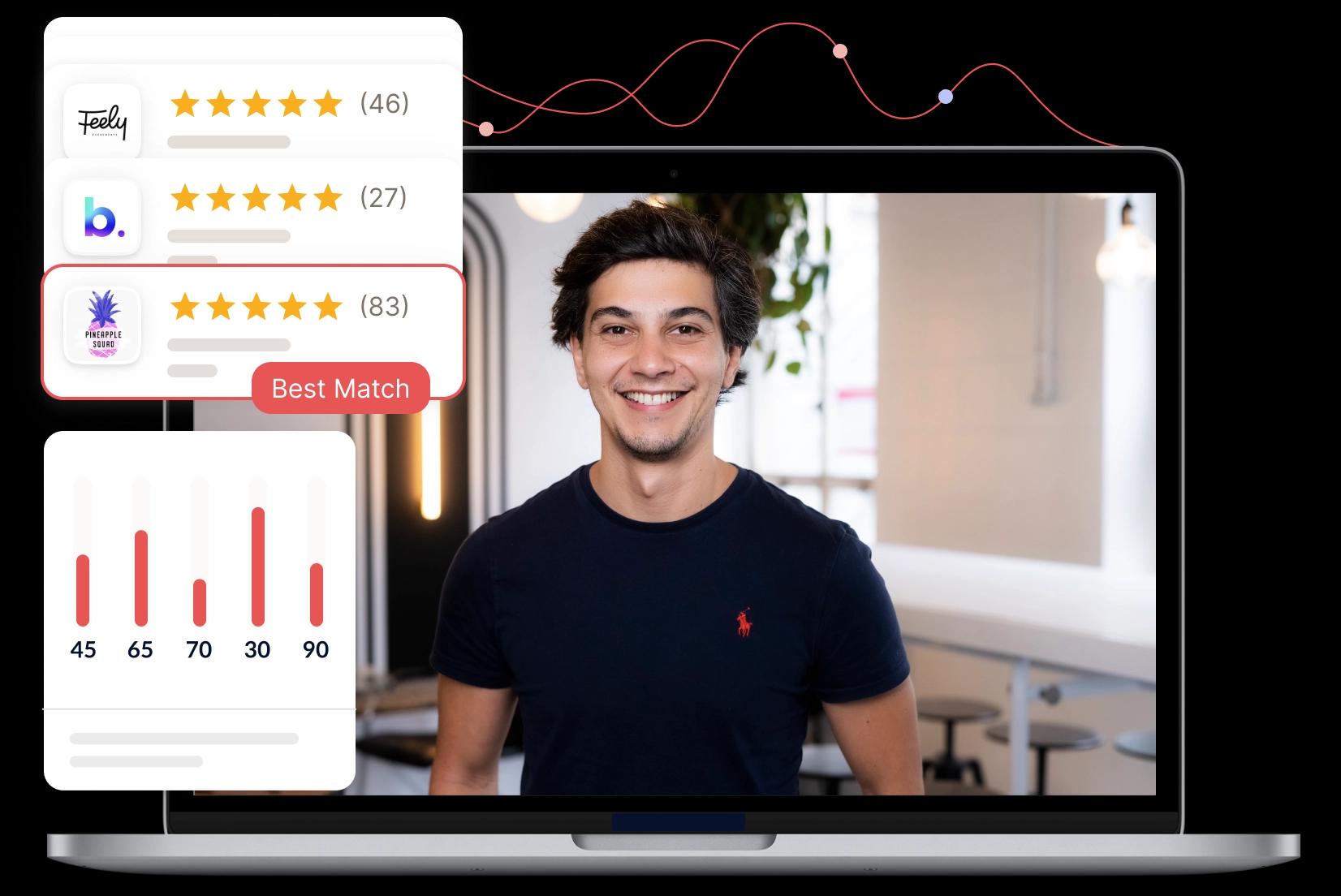NinjaPromo. Full-Stack Marketing Agency
Kickstart your journey toward higher levels of visibility, traffic, conversions, sales and ROI.
Explore
Discover and browse our entire catalog of service providers.
Post a project
Post a new project now and find service providers that best match your needs.
Get Advice
Our industry experts help you choose the provider that suits you best. Free.
Browse our providers
Search through a database of 38K talented service providers and collaborate with the best for your specific needs.
Advertising & Marketing
Not what you are looking for?
Browse all servicesLet providers come to you
Describe your needs in a short briefing containing your requirements. Send it to providers we suggest you and wait for their answer.
Post a project in:
Our advisors guide you to the right provider
Let our industry experts help you choose the best suited provider and turn your idea into a successful business project.
Learn more about advisors
Which one is the best for your company?
NinjaPromo. Full-Stack Marketing Agency
Kickstart your journey toward higher levels of visibility, traffic, conversions, sales and ROI.
NinjaPromo. Full-Stack Marketing Agency
Kickstart your journey toward higher levels of visibility, traffic, conversions, sales and ROI.
✅ Elevate Digital | DTC Performance Marketing Agency
Facebook/Instagram Ads | Meta/Google Marketing Partner | TikTok ads for eCommerce Brands/SAAS
360° Excellence in 8 Languages – Marketing House: Your Multilingual Marketing Partner.
Struggling to choose? Let us help.
Post a project for free and quickly meet qualified providers. Use our data and on-demand experts to pick the right one for free. Hire them and take your business to the next level.